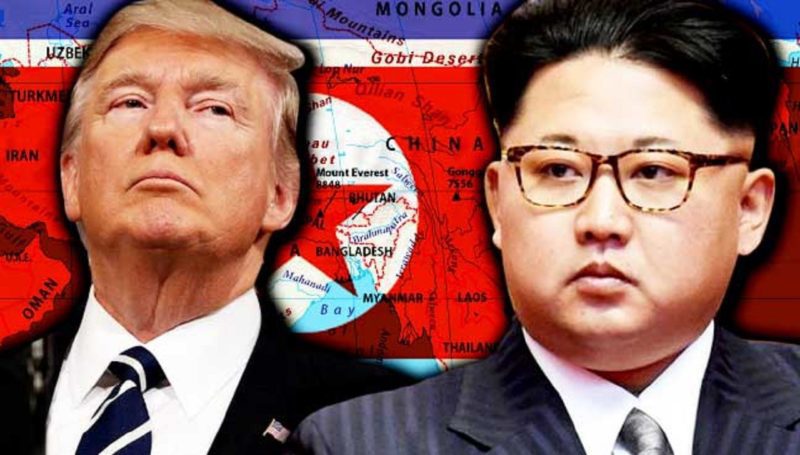Members of Abolition 2000 and affiliated networks, representing peace and disarmament organisations from around the world, have called on the United States and North Korea to step back from the brink of war in North East Asia, and instead adopt a diplomatic approach to prevent war.

The global network aimed at eliminating nuclear weapons in a statement endorsed by member organisations and individuals, called for the immediate commencement of negotiations to prevent a military conflict from erupting, and to resolve the underlying conflicts. Such negotiations, they added, should take place both bilaterally and through a renewed Six-Party framework involving China, Japan, North Korea, Russia, South Korea and the United States.
According to the group, the escalating tensions and threat of military conflict over North Korea’s nuclear and missile capabilities makes a diplomatic solution of vital importance and the highest priority. It added that the increasing risk of war – and possibly even the use of nuclear weapons by miscalculation, accident, or intent – is frightening.
“More than three million citizens of Korea, China, USA and other countries lost their lives in the Korean War from 1950-1953. Should a war erupt again, the loss of lives could be considerably worse, especially if nuclear weapons are used. Indeed, a nuclear conflict erupting in Korea could engulf the entire world in a nuclear catastrophe that would end civilisation as we know it,” declared Abolition 2000.
In supporting diplomacy rather than war, the group listed a number of measures, which include:
- Oppose any pre-emptive use of force by any of the parties, which would be counter-productive and likely lead to nuclear war;
- Call on all parties to refrain from militaristic rhetoric and provocative military exercises;
- Encourage China, Japan, North Korea, Russia, South Korea and the United States to consider the phased and comprehensive approach for a North-East Asian Nuclear-Weapon-Free Zone with a 3+3 arrangement, which already has cross-party support in Japan and South Korea and interest from the North Korean government;
- Encourage China, Japan, North Korea, Russia, South Korea and the United States to also consider options and modalities for turning the 1953 Armistice Agreement into a formal end to the 1950-1953 Korean War;
- Welcome the call of the UN Secretary-General for a resumption of Six-Party talks and his offer to assist in negotiations;
- Welcome also the offer of the European Union to assist in diplomatic negotiations, as they did successfully in the negotiations on Iran’s nuclear program;
- Call on the United Nations Security Council to prioritise a diplomatic solution to the conflict.
The 3+3 arrangement, it was gathered, would include Japan, South Korea and North Korea agreeing not to possess or host nuclear weapons, and would require China, Russia and the USA agreeing not to deploy nuclear weapons in Japan, South Korea or North Korea, nor to attack or threaten to attack them with nuclear weapons.
